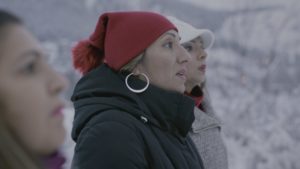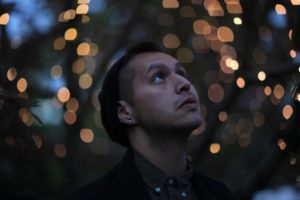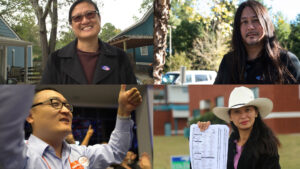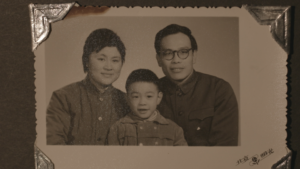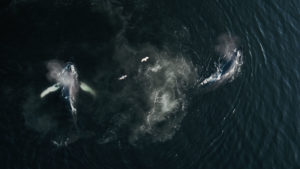An Interview with Lisa Salazar
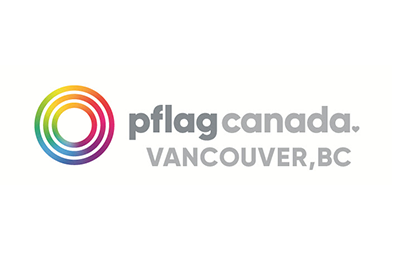
On November 30th, Reel Causes is proud to present My Dads, My Moms and Me, a documentary that follows three queer families on their parenthood journey.
We spoke with Lisa Salazar from community cause Pflag regarding her involvement with the organization and the importance of our venue change.
Tell us about Pflag.
Pflag started over 30 years when a mom walked with her son in a Pride Parade. She decided to walk with a plaque that said: “I love my gay son.” A lot of parents along the way were cheering and clapping.
Many of them reached out to her and it started as a small support group in the city, and broke off into chapters. That was what I understand is the genesis of Pflag.
Then it became a national organization and then international, as more and more people wanted to do the same thing in their respective communities.
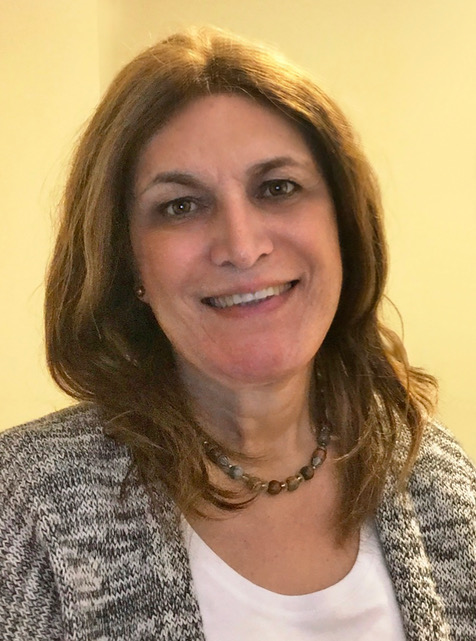
How and when did you get involved with the organization?
I learned about Pflag around 2009, one year into my transition. I had transitioned pretty much solo. I didn’t have any contact with the LGBTQ community or support groups.
When I first learned that the Pflag acronym stood for parents, families, and friends of lesbians and gay, I immediately thought, “Oh, it must be a support group for significant others of people who are LGBTQ.” That was the misconception that I had, thinking it’s very specific for lesbians and gays.
In 2012, I visited friends who were very involved in the San Diego PFLAG chapter. They asked if I’d ever attended a Pflag meeting and I said. “No, why would I go? It’s not for me.” And they said: “What do you mean it’s not for you? It’s for everyone.”
Trans identities were not really understood or recognized or acknowledged until maybe 15 years ago, but there was more and more happening within Pflag for families and friends of trans people and trans people attending Pflag meetings.
I checked out the Vancouver chapter and learned it was going through that evolution. They welcomed me with open arms. There was another trans identified person and we were the trans presence in the meetings. Little by little, we had more and more people attending with trans identities being the reason they wanted to get more information.
What’s very heartening about Pflag is people attending because they want to know how to support their loved ones. They’re coming for answers. They’re the ones who have not dismissed their loved one. It’s really heartening to see people vulnerable and share how confused they are, how scared they are. It’s great to have people come back, who’ve already gone through that initial shock and have been able to embrace their loved one. They’ve learned from the other parents and now they’re back to offer their wisdom. It continues to perpetuate itself that way.
People keep cycling through and every once in a while we get somebody coming back a year later saying, “This was so helpful; I want to know how I can help. I’d like to attend meetings, just to be here to offer support.” That’s how Pflag continues.
Pflag started in Vancouver in 1984. How has Pflag evolved in recent years?
Every once in a while, there are people who attend the meetings looking to galvanize advocacy and activism. They want to make the conversation more political. We’ve noticed it’s really important for us to come back to our goal: peer support. We’re not counselors, although we try, and one of our tenets is to educate.
We’ve decided to pull back and use our signs only at events where we know it’s a supportive environment. We always have to remind ourselves of our mission, because when parents come for the first time to a meeting, and the discussion is all about militancy, it scares them away. It creates an, “Oh my goodness. It’s going to be really difficult for my loved one.”
It’s true that we need to stand up, but it’s equally important to keep the focus of the meetings on peer support and how we can help each other. We do that because we have no control as to who is going to arrive at any given meeting.
Is there anything else you’d like to say about Pflag that hasn’t been covered?
Our chapters are pretty humble little organizations. We don’t get a lot of funding. We always have donation bins at all the meetings and people will put in cash; that money is for renting the facilities we use and our cell phone.
When people call us, it goes to voicemail. Someone will get the message and everybody who’s on the organizing committee will get an email saying, “We have a call from a mom who just learned her 28-year-old son is trans and she’s devastated and would like to talk to somebody.” The first person who’s available who feels able or capable to have that conversation responds.
Reel Causes moved the venue of the My Dads, My Moms and Me event at Pflag’s request because of a transphobic event also being held at SFU, which was subsequently cancelled due to security reasons. Why do you feel it’s important that the venue was moved?
One of the things we’re concerned about is the optics of how Pflag is perceived, given that the trans community is so marginalized and the trans community is always very sensitive to public perceptions.
Even though the event ultimately didn’t happen at Simon Fraser, the fact that they were willing to host the event sent very strong signals to the trans community. This was not a safe space for trans people. And for not just the community, but for the students.
We agreed that we needed to make a statement that it’s not okay for publicly funded institutions to be that lax. When they rent their facilities, they need to exercise a bit more scrutiny and judgment, especially when the trans community is already being marginalized and attacked with all kinds of misinformation.
It was unfortunate that we had to raise the issue, but we felt it was important to do so.
As an ally, what can we do to support the trans community?
Anyone who wants to support the trans community first has to educate themselves. If you take the time, there’s great stuff on YouTube, there’s great stories, great articles, and resources like HRC, National Center for Transgender Equality, even Vancouver Coastal Health, Trans Care BC.
This will give you a much better understanding of the issues: this is not a lifestyle that people choose. A trans person and non-binary person will know very early on in life that they’re different. They may not have the language or the terminology to be able to make sense or explain how they’re feeling, but this is not something that people make up. And it’s not something you can catch from somebody else.
There’s some excellent books that have been published recently, especially one by Brynn Tannehill — Everything You Ever Wanted to Know about Trans (But Were Afraid to Ask). Brynn has painstakingly catalogued all the myths and all the things people say about trans identities, and provides the research, links and arguments, and rebuts all those things. Brynn goes through the terminology, what it means, and dispels a lot of the misinformation that’s being put out there very tactically by the conservative right, especially the religious right in the United States.
We are in Canada, but we are impacted by ideologies that come across the border. These think tanks have created white papers, strategizing how to stop what they call the transgenderism wave. It’s really interesting that in a white paper they say that the “first wave was the feminist movement. We fought that battle, and we lost. Next wave was the gay movement. We fought that battle, and we lost. But now we’ve learned, and we’re not going to lose the third wave, which is transgenderism. We’re going to stand up and we’re going to fight this and eliminate it.”
Again, we need to stand up against that and in the meetings we talk about those things, but we also provide resources and point people to books, like Brynn’s book, where they can get information that will allay their fears. Education is information sharing and how to support each other.

About Reel Causes Society
Reel Causes partners with filmmakers and Canadian causes dedicated to addressing global social justice issues. We host film screenings followed by a Q&A session to educate and inspire our community, and provide a forum for authentic conversation aroundF the issues that affect us locally.
